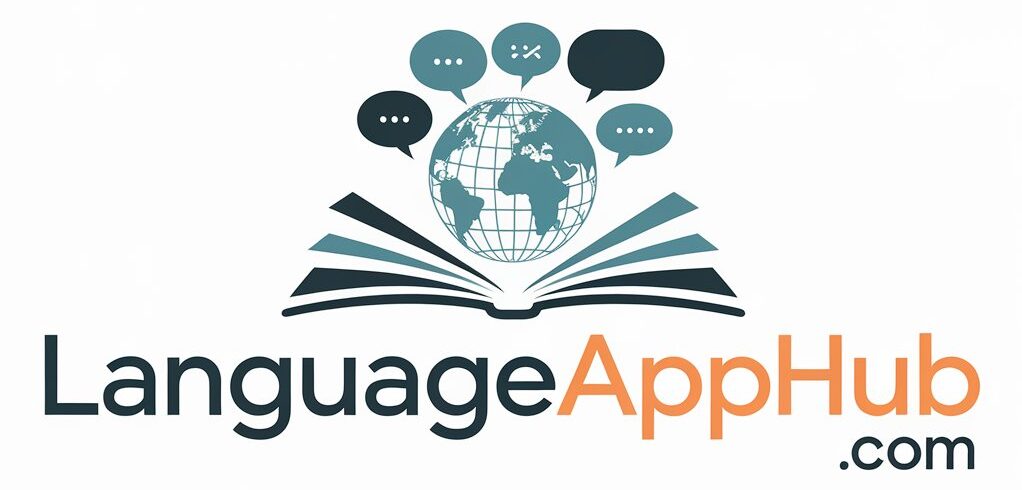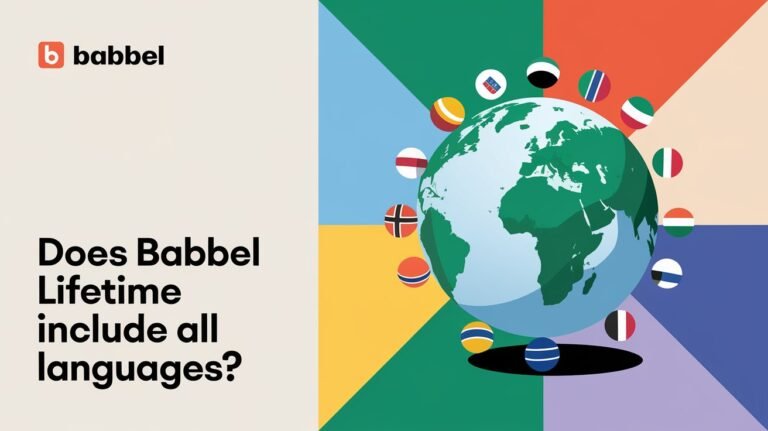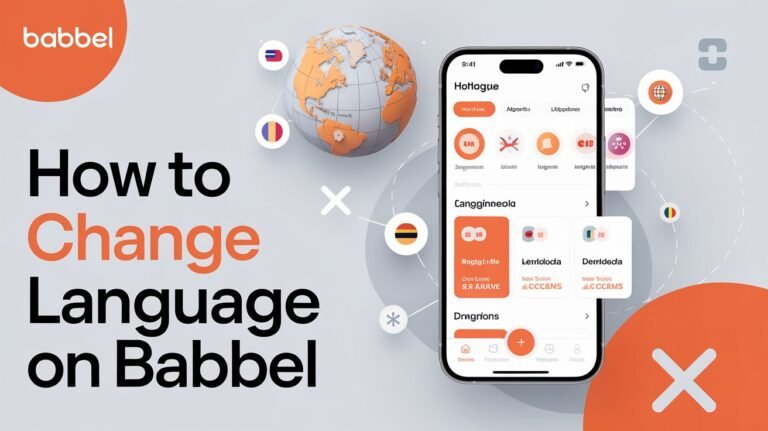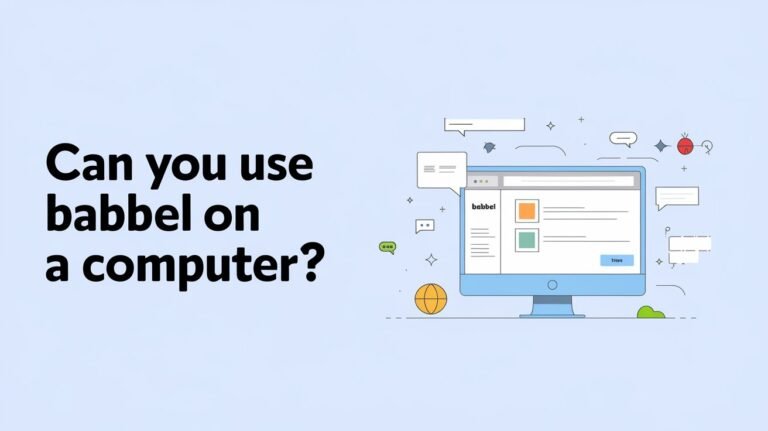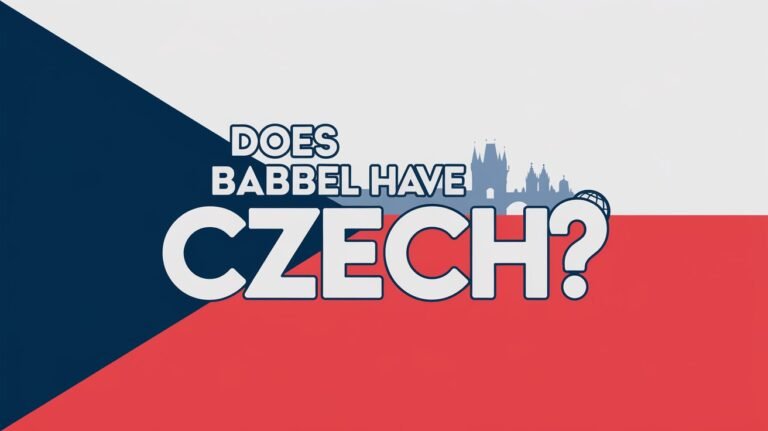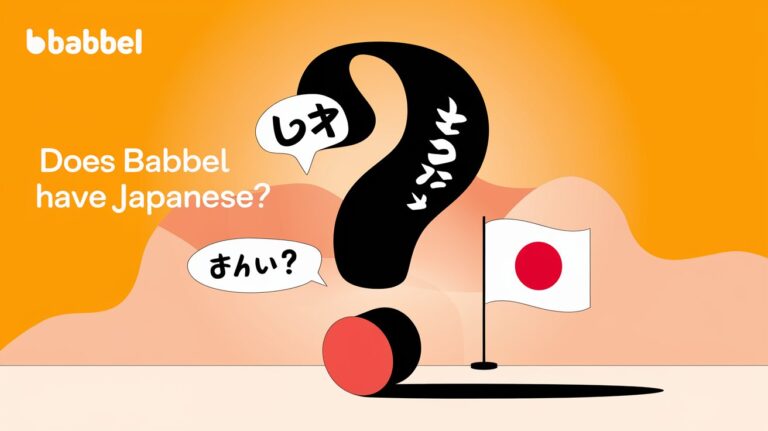Is Babbel Better Than Rosetta Stone? A Detailed Comparison

The debate between Babbel and Rosetta Stone is a big one. People wonder, is Babbel better than Rosetta Stone? It really depends on who you are and what you want to achieve. We’ll look at what each app offers to help you decide.
Babbel and Rosetta Stone cost about the same, $8-$15 a month. But they teach languages in different ways. Babbel has 14 languages, like Dutch and Spanish. Rosetta Stone offers 25 languages, including Arabic and Chinese. So, it’s important to think about your goals before choosing.
Core Features Face-Off
When looking at language learning software, it’s key to check the main features. Babbel and Rosetta Stone are two top choices with different focuses. Babbel is known for its interactive drills and exercises. Rosetta Stone, on the other hand, is praised for its immersive lessons that use inference.
Speech recognition is a big deal in language learning. Rosetta Stone’s TruAccent is top-notch, helping learners get their pronunciation right. Babbel’s tech is good but not as advanced. This is important for those wanting to get better at speaking.
Speech Recognition Technology
Rosetta Stone’s TruAccent has been perfected over years, offering precise pronunciation checks. Babbel has a variety of interactive lessons but its speech tech isn’t as advanced.
Course Structure Comparison
Babbel’s lessons are flexible, with many types and exercises. Rosetta Stone’s lessons are more structured, great for those who like a clear path. Here’s a quick look at what each offers:
| Feature | Babbel | Rosetta Stone |
|---|---|---|
| Speech Recognition Technology | Less advanced | Patented TruAccent |
| Course Structure | Flexible | Rigid |
| Available Languages | 14 languages | 25 languages |
Available Languages
Rosetta Stone covers more languages, with 25 options. Babbel has 14. This is a big plus for those learning rare languages. Knowing these features helps learners choose between Babbel and Rosetta Stone.
Price Analysis and Subscription Models
Pricing is key when choosing language learning tools. Babbel and Rosetta Stone offer different plans. Babbel is more affordable, with a subscription that unlocks all features. Here’s what you pay for Babbel:
- 6 months: $47.94
- 12 months: $96.88
- Lifetime: $319
Rosetta Stone, while more comprehensive, costs more. Here’s what you’ll pay for Rosetta Stone:
- Monthly: $11.99
- Yearly: $299
- Lifetime: $399
Babbel is cheaper, but Rosetta Stone offers unlimited access. Your choice depends on your budget and needs.
| Language Learning App | Subscription Plan | Price |
|---|---|---|
| Babbel | 6 months | $47.94 |
| Babbel | 12 months | $96.88 |
| Babbel | Lifetime | $319 |
| Rosetta Stone | Monthly | $11.99 |
| Rosetta Stone | Yearly | $299 |
| Rosetta Stone | Lifetime | $399 |
Language Teaching Methods
When comparing language learning, Babbel and Rosetta Stone use different methods. Babbel uses interactive drills and exercises, perfect for those who enjoy a hands-on approach. Rosetta Stone, on the other hand, focuses on immersion, which can be tough for some. It’s important to think about these differences when choosing a program.
Grammar is a big part of language learning. Babbel’s method is subtle, while Rosetta Stone’s is clear. This can affect how well you learn, depending on your strengths. Looking at babbel reviews can help you decide which program works best for you.
Key Differences in Language Teaching Methods
- Interactive drills and exercises (Babbel)
- Immersion strategy with intuition and inference (Rosetta Stone)
- Subtle grammar integration (Babbel)
- Explicit grammar integration (Rosetta Stone)
Choosing between Babbel and Rosetta Stone depends on what you prefer and your goals. Knowing how each program teaches can help you pick the right one for you.
Mobile App Performance
When comparing language learning software, the mobile app performance is key. Babbel and Rosetta Stone have different strengths and weaknesses. Babbel’s app is easy to use, perfect for on-the-go learning. Rosetta Stone’s app, on the other hand, offers more features and content.
So, which app is better? It depends on what you value most. If you like a simple interface, Babbel might be for you. But if you want a more detailed learning experience, Rosetta Stone could be the better choice.
| Feature | Babbel | Rosetta Stone |
|---|---|---|
| User-friendly interface | Yes | No |
| Comprehensive features | No | Yes |
| Language learning software comparison | Yes | Yes |
In conclusion, the choice between Babbel and Rosetta Stone’s apps depends on your needs. By considering what each offers, you can pick the best app for your language learning goals.
Is Babbel Better Than Rosetta Stone? Direct Comparison
When comparing language learning programs, Babbel and Rosetta Stone are top choices. We’ll look at their success rates, how well users stick with them, and how fast learners progress.
Babbel leads in success rates, helping more learners reach their goals. It also keeps users engaged longer. But, Rosetta Stone is quicker, with learners moving through lessons faster.
Success Rates
Babbel’s success comes from its interactive and personalized lessons. It tailors content to the learner’s native language, making it easier to grasp and remember.
User Retention Statistics
Babbel keeps users coming back with its engaging lessons. It offers a variety of activities, like audio lessons and games, to keep learners motivated.
Learning Speed Metrics
Rosetta Stone’s lessons are structured and comprehensive. This allows learners to progress quickly and efficiently, with each lesson building on the last.
| Program | Success Rate | User Retention Rate | Learning Speed |
|---|---|---|---|
| Babbel | Higher | Higher | Slower |
| Rosetta Stone | Lower | Lower | Faster |
In conclusion, the choice between Babbel and Rosetta Stone depends on your learning style and goals. Babbel offers a more interactive and personalized experience. Rosetta Stone provides a structured approach. The best program is one that matches your learning style and helps you reach your goals.
Offline Access and Features
Offline access is key for many language learners. Both Babbel and Rosetta Stone offer this feature, but in different ways. Babbel lets learners study offline and sync their progress online. This is great for those who like to learn at their own pace.
Rosetta Stone, on the other hand, needs learners to be online to use its content. But, it’s not less good than Babbel for offline use. The main difference is how they handle offline features. For example, Babbel lets learners download lessons to review later, perfect for those with little internet.
Here are some key features of Babbel and Rosetta Stone’s offline access:
- Babbel: flexible offline access, downloadable lessons, and syncable progress
- Rosetta Stone: limited offline access, with some features requiring an internet connection
Choosing between Babbel and Rosetta Stone depends on what you prefer. If you want flexibility and can use offline, Babbel might be better. But if you like a structured approach and advanced speech tech, Rosetta Stone could be your choice. Think about these points and decide which app fits your learning style best.
| Feature | Babbel | Rosetta Stone |
|---|---|---|
| Offline Access | Flexible, downloadable lessons | Limited, some features require internet |
| Syncable Progress | Yes | No |
| Speech Recognition Technology | Instant feedback | TruAccent, real-time feedback |
Customer Support and Resources
Access to good customer support and resources is key for language learners. Babbel shines in this area, offering top-notch tutorials and tech help. This makes it a top choice for learning a new language. Many users say Babbel’s support team is quick and very helpful.
Rosetta Stone, on the other hand, has less support but its voice tech is top-notch. It gives detailed feedback on how you sound. When picking a language program, think about support, language options, and cost.
Here are some key features of Babbel’s customer support and resources:
- High-quality tutorials and technical assistance
- Responsive customer support team
- Comprehensive online resources, including FAQs and user guides
Choosing between Babbel and Rosetta Stone depends on what you need. Look at support, language choices, and price to decide which is best for you.
| Feature | Babbel | Rosetta Stone |
|---|---|---|
| Customer Support | Comprehensive, responsive | Limited |
| Voice Recognition Technology | Advanced | Highly advanced |
| Language Selection | 14 languages | 24 languages |
Real Student Results
When comparing language learning software, real student results are key. Babbel outshines Rosetta Stone in this area. Its lessons are engaging and effective, leading to better results.
User reviews highlight Babbel’s high satisfaction rate. Learners find it effective and easy to use. This makes Babbel a top choice for many.
Babbel’s success comes from its interactive lessons and focus on grammar. Rosetta Stone, on the other hand, uses repetitive methods with images. Babbel’s approach is more effective for many.
- Babbel offers approximately 275 hours of lesson work across all primary levels and courses.
- Babbel incorporates 2 to 6 courses within each level, with each course containing between 5 to 15 lessons.
- Babbel provides short review sessions (2-3 minutes) every time users log in for a lesson.
In conclusion, Babbel is the better choice for those seeking effective language learning. By looking at the comparison and Babbel’s features, learners can make a smart choice.
Conclusion
After a detailed look, Babbel stands out as the top choice for language learners. It offers a conversation-based method, flexible pricing, and top-notch customer support. This makes it easy and accessible for users.
Rosetta Stone has a more structured program, but Babbel focuses on real-world talks and short lessons. This suits today’s busy learners better.
If you’re starting or improving your language skills, Babbel is the way to go. It has affordable plans and a wide range of languages. This makes it a smart choice for anyone wanting to learn a new language.
So, if you’re looking for the best language learning program, Babbel is the clear winner. It beats out Rosetta Stone in this language learning comparison.
FAQ
Is Babbel better than Rosetta Stone?
The debate between Babbel and Rosetta Stone is ongoing. Each app has its own strengths and weaknesses. The best choice depends on the learner’s type and goals.
What are the core features of Babbel and Rosetta Stone?
Babbel offers a variety of drills and exercises. Rosetta Stone uses intuition and inference. Babbel’s speech recognition is not as good as Rosetta Stone’s TruAccent technology.
Babbel’s course structure is more flexible. Rosetta Stone’s approach is more rigid.
How do the pricing and subscription models differ between Babbel and Rosetta Stone?
Babbel is more affordable with a subscription model. Rosetta Stone is more comprehensive but costs more.
What are the differences in language teaching methods between Babbel and Rosetta Stone?
Babbel focuses on interactive drills. Rosetta Stone uses immersion. Babbel’s grammar is more subtle. Rosetta Stone’s is more explicit.
How do the mobile apps of Babbel and Rosetta Stone compare?
Babbel’s mobile app is easier to use. Rosetta Stone’s app has more features and content.
How do Babbel and Rosetta Stone compare in terms of success rates, user retention, and learning speed?
Babbel has a higher success rate and keeps users longer. But Rosetta Stone’s learners learn faster.
What are the differences in offline access and features between Babbel and Rosetta Stone?
Babbel offers flexible offline access and sync. Rosetta Stone requires online access and has a rigid structure.
How do Babbel and Rosetta Stone compare in terms of customer support and resources?
Babbel provides high-quality tutorials and technical help. Rosetta Stone offers less.
What do real student results say about Babbel and Rosetta Stone?
Babbel has a higher success rate and learner satisfaction. Users like its effectiveness and ease of use.
